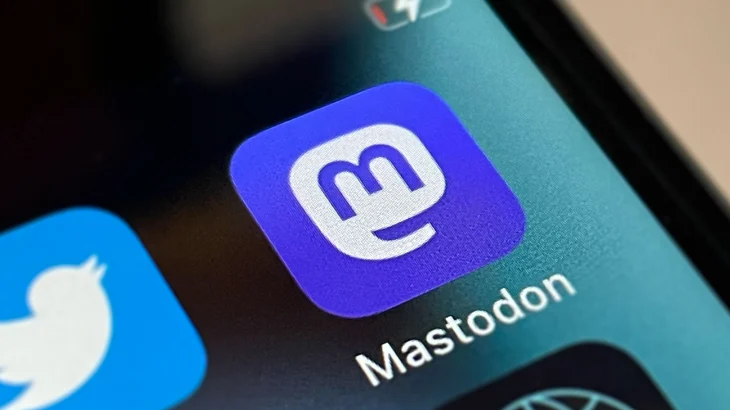Mastodon, an open-source, decentralised social network, has benefited from Elon Musk's disastrous takeover of Twitter. Today, the nonprofit company that runs Mastodon announced that it had reached a new milestone. Over the weekend, many people downloaded the Mastodon mobile app. According to a post on Twitter, where Mastodon has been effectively selling its app to individuals contemplating abandoning the service, 230,000 people have joined Mastodon in the past week alone. According to the article, the Mastodon social network now has 655,000 active members because of these new sign-ups, and because some people are returning to accounts they set up before.
See also: Best Buy acquires U.K. Company Current Health
Mastodon Witnesses Large Numbers
This comes from the recent announcement that the open-source network saw over 70,000 new sign-ups on Friday, October 28 – the day after Musk's bid to buy Twitter ended. Third-party data from Sensor Tower shows that the Mastodon mobile app got about 91,000 new installations from Friday to Sunday. This is a 658% increase from the 12,000 installations it got in the three days before.
This quick rise, however, has not been without consequences for the Twitter alternative.
Mastodon’s Challenges
Mastodon Social, one of the most popular servers on the Mastodon network, has been suffering from lags and outages this week as it struggles to handle the flood of new users. Because their first experience with Mastodon was poor, this may put some people off using it.
Although Mastodon founder and CEO Eugen Rochko has worked long hours to enhance the service and bought new hardware, the upgrading process has taken time at this critical juncture in Mastodon's history. When new users test a service for the first time and are disappointed by bugs and other difficulties, they are unlikely to return.
Furthermore, several users joined Mastodon needing to fully comprehend how a decentralised social network works and found the procedure difficult or unnecessarily technical. Unlike on Twitter or any other typical social network, users do not just establish an account and begin posting. They must first choose a server to use as their Mastodon home. This is where individuals need clarification since they need to know where to look for a server list, how to pick the proper one, or if they're confined to conversing with others on that server. This may also discourage people from investigating Mastodon further.
Unfortunately, this is Mastodon's main selling point - you join a server that best suits your interests. Furthermore, since the demand is distributed across a network of servers, operating Mastodon does not need the infrastructure and engineering — or the vast amount of cash — that a network like Twitter requires. As a result, instead of advertisements, Mastodon may be funded by smaller income sources like sponsorships and contributions. This implies that Mastodon cannot be purchased or sold to someone like Musk.
How Does Mastodon Work?
A distinct person or group runs each Mastodon server, and each has its moderation standards. Users, however, are not confined to talking with pals on their server; you may locate and follow friends anywhere on the network. You may, however, split your server's timeline feed and the wider "Federated" feed from your Home feed of individuals you follow. This is especially useful if the server you've joined is populated with community members who write about topics of interest to you. There are also a variety of topic-based servers to pick from to assist with this. In addition to generic servers for socialising, several topic-based servers concentrate on subjects such as technology, music, gaming, art, activism, LGBTQ+, cuisine, and more. This enables everyone to carve out their niche.
Decentralisation: The Future of Social?
Notably, Twitter co-founder and former CEO Jack Dorsey are pursuing decentralisation with his new social networking platform Bluesky, which has over 30,000 sign-ups on its waitlist ahead of its prelaunch. In the future, a Bluesky mobile app will enable users to connect by utilising this technology.
However, the open source community, including many who have worked tirelessly on Mastodon over the years, has been disappointed by the Silicon Valley executive's choice to go his way with Bluesky rather than adopting known protocols like ActivityPub, which powers Mastodon and others.
Users will soon have to decide whether they want a decentralised social networking future — or if the activity on Twitter, independent of its owner, is too alluring to give up.
Featured image: Mastodon
Subscribe to Whitepapers.online to learn about new updates and changes made by tech giants that affect health, marketing, business, and other fields. Also, if you like our content, please share on social media platforms like Facebook, WhatsApp, Twitter, and more.

